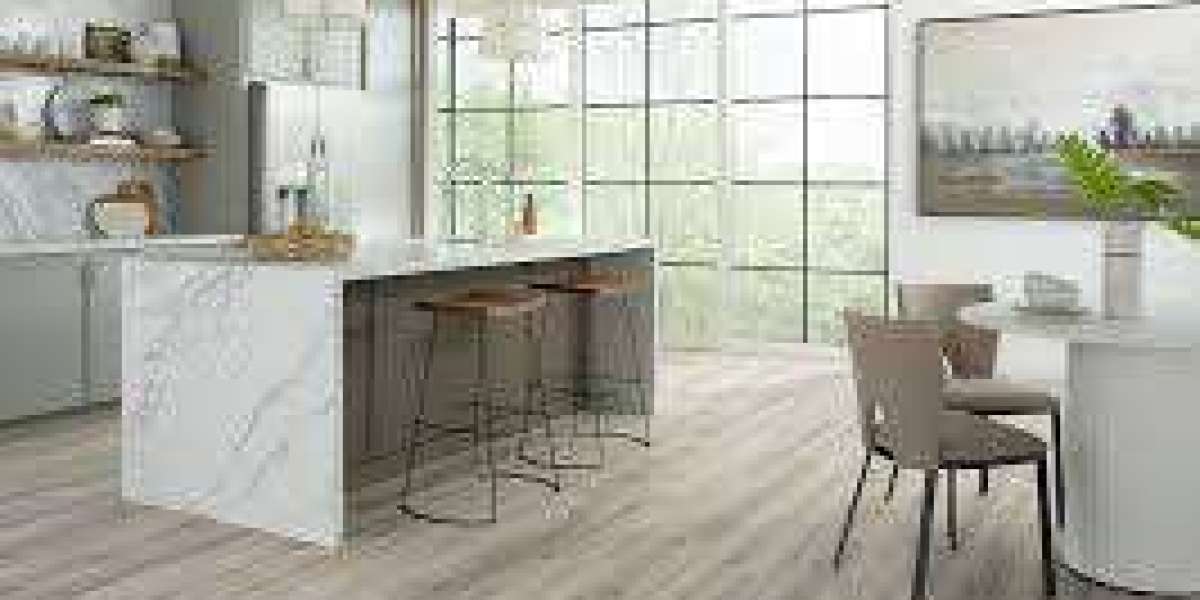Introduction
While vinyl records have been replaced by discos and VCRs, vinyl flooring is still popular. Vinyl flooring is becoming increasingly popular among households, with sales reaching record highs. This is most likely owing to the particular benefits that vinyl flooring offers. It's simple to install and maintain, durable, and provides a comfortable walking surface.
But is vinyl flooring suitable for you? There are several factors to consider before deciding on vinyl. See our list of 12 things you should know before purchasing vinyl flooring below.
What is vinyl flooring?
Luxury vinyl flooring is made completely of a synthetic material called polyvinyl chloride plastic (PVC). PVC is heated and pressed into thin layers, which are then attached to create vinyl tiles or planks. Each piece of vinyl has a photorealistic visual layer showing hardwood, stone, or ceramic appearances, as well as a textured surface layer that mimics the feel of authentic wood grains and minerals.
Vinyl is long-lasting, adaptable, and cost-effective, as well as resistant to dampness and heavy foot traffic. It is frequently confused with other resilient flooring materials such as linoleum and laminate - and while luxury vinyl shares characteristics with laminate, there are fundamental variances in their manufacture that distinguish them from one another.
Types of Vinyl Flooring
Vinyl flooring comes in two varieties: sheet flooring and tile flooring. Sheet flooring, which is placed down in sheets 6 to 12 feet wide, is waterproof and simple to install. Vinyl tile flooring is available in tile sizes of 9 or 12 square inches and has the appearance of ceramic tile while being less expensive. Luxury Vinyl Tile, which looks like stone or wood, comes in plank shapes that are typically 7" wide by 48" long.
Vinyl Finishes
There are three sorts of treatments for vinyl flooring, all of which produce a stunning final effect.
Vinyl with no wax finish: This is the lightest variety, ideal for places with little foot traffic and little exposure to dirt and dampness.
Urethane Finish: This finish is more robust, heavier, and can withstand considerable foot activity. It is also scuff-resistant and easy to clean.
Vinyl flooring is among the most cost-effective flooring solutions per square foot. On average, installation costs between $2 and $12 per square foot. Luxury Vinyl Tile, or LVT to those of us in the business, is similarly affordable, with installation costs ranging from $3 to $14 per square foot. When compared to wood, stone, or ceramic flooring, vinyl provides significant savings. And if you're handy, you may save even more money by laying the vinyl flooring yourself. Depending on the complexity of the project, you should anticipate to pay $1-$2 less per square foot if you do the installation yourself, while we are always pleased to install your new flooring.
Installation is easy.
Vinyl flooring is often easier to install than other types of flooring. A floating vinyl sheet, for example, requires no glue or staples. Instead, peel and stick vinyl can be easily applied to a prepared subfloor. Vinyl flooring can be laid on concrete, hardwood, or plywood. It can even be laid over existing vinyl; however, it is not recommended if there are two or more layers already.
Durability
Vinyl flooring is quite durable. If properly installed and maintained, it can survive for 10-20 years. That being said, vinyl is an excellent choice for the rooms in your home that receive the greatest foot activity. Furthermore, most vinyl flooring has a wear layer on the surface that protects against scratches and stains. Some vinyl materials even come with 15-year wear layer warranties. As with any flooring, the quality of the material you choose will determine how long it lasts.
Stain Resistance
As previously stated, some vinyl tiling has a wear layer that resists stains and spills; printed vinyl tiles and sheets provide this protection. On the other hand, solid and composite vinyl tiles lack this surface protection. As a result, they are more prone to stains and require periodic stripping and polishing to keep them looking new.
Thickness
Vinyl is often gentle on your feet. Some vinyl sheets and tiles even include a cushioned layer to make walking on vinyl more comfortable. Vinyl floors are often known as "resilient" floors. This implies that when you walk across the floors, they retain some elasticity. Luxury vinyl tile is also quieter due to its sound-absorbing characteristics.
Recommended Usage
Because of its endurance, vinyl tiling is an excellent alternative for
Kitchens
Bathrooms
Basements
Family Rooms
Laundry Rooms
Maintenance
This is one area where vinyl tiling excels. Maintenance is usually very simple. After sweeping your vinyl floor to remove dirt and grit, simply run a damp mop over it (with an approved vinyl floor cleaner) to maintain it looking its best. Most vinyl flooring has a "no wax" surface and will remain as shiny after mopping as the day you purchased it.
Design
Some may argue that vinyl flooring's design options are its best attribute; vinyl's adaptability makes it a popular choice among homeowners. With so many different colours and designs of vinyl flooring, the possibilities are almost limitless. For example, you can mix solid and composite vinyl to create one-of-a-kind, randomly generated designs. Consider printed vinyl. It allows you to achieve the look of stone or hardwood without the cost of employing such natural materials.
Vinyl Repairs
High-quality vinyl flooring is extremely durable. However, low-quality vinyl is prone to rips and tears, and refinishing it can be challenging. This is particularly true when utilising sheet vinyl. Vinyl flooring cannot be refinished; once damaged, it must be removed and replaced.
Sunlight
Unfortunately, the sun may destroy most types of flooring. Vinyl flooring may discolour over time when exposed to direct sunlight. It is recommended that you draw the drapes closed to protect your flooring during periods of intense sunshine.
As you can see, vinyl flooring is an excellent solution for high-traffic rooms in your home. It is a popular alternative for homeowners looking to improve the appearance of their home due to its longevity, low cost, and ease of upkeep.







